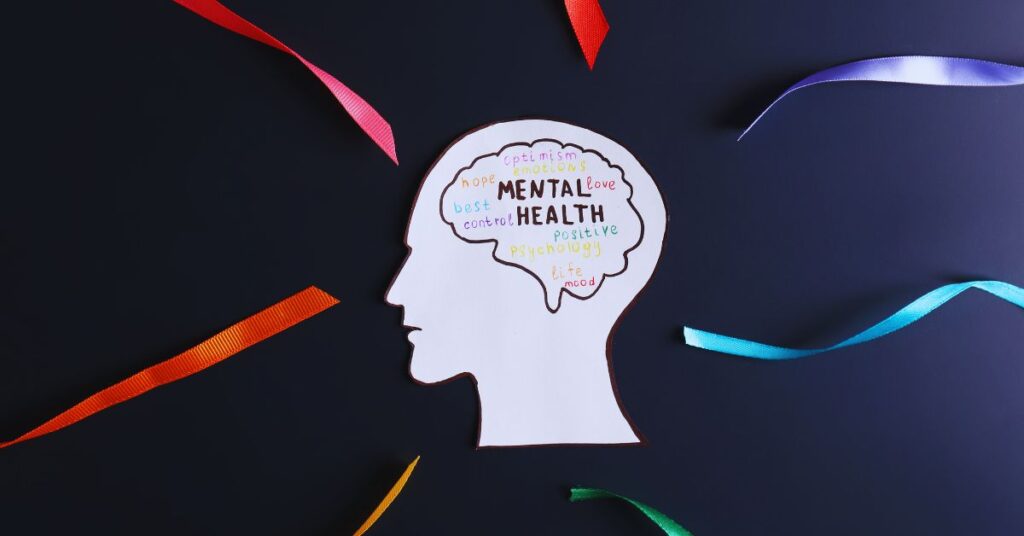Motivating a teenager with depression can be challenging. Understanding their struggle is key.
It takes patience, empathy, and the right strategies to help them feel motivated. Depression in teenagers is more common than many realize. It affects their daily life, school performance, and relationships. As a parent, teacher, or friend, you play a crucial role in their recovery.
Knowing how to encourage them can make a significant difference. This guide will provide you with practical tips and methods to support your teenager. By understanding their needs and offering the right kind of help, you can aid in their journey to feeling better. Let’s explore how to motivate a teenager dealing with depression effectively.
Topic of Contents
ToggleRecognizing Signs Of Teen Depression
Recognizing signs of teen depression can be challenging. Teenagers often go through emotional and behavioral changes. Understanding the signs can help in providing the right support.
Behavioral Changes
Behavioral changes are often the first sign of depression in teens. They may start withdrawing from activities they once enjoyed. You might notice them avoiding friends and family.
Another common change is a noticeable drop in academic performance. They might struggle to concentrate on schoolwork. Also, look for changes in sleep patterns. Teens with depression may sleep too much or too little.
| Common Behavioral Changes | Details |
|---|---|
| Withdrawal from Activities | Avoiding hobbies and sports they once loved. |
| Isolation | Preferring to be alone rather than with friends or family. |
| Academic Decline | Lower grades and difficulty focusing on studies. |
| Changes in Sleep | Sleeping too much or experiencing insomnia. |
Emotional Symptoms
Emotional symptoms can be subtle but significant. Teens may exhibit persistent sadness or irritability. They might express feelings of hopelessness or worthlessness.
Pay attention to any changes in their emotional state. They might cry frequently or have intense mood swings.
Sometimes, teens may also talk about death or suicide. Always take these statements seriously.
- Persistent Sadness: Feeling sad most of the time.
- Irritability: Easily annoyed or angered.
- Hopelessness: Believing that things will never get better.
- Worthlessness: Feeling like they are not good enough.
- Frequent Crying: Crying more often than usual.
- Mood Swings: Rapid changes in mood.
- Suicidal Thoughts: Talking about death or self-harm.
Creating A Supportive Environment
Creating a supportive environment can help motivate a teenager with depression. Offer a listening ear and show empathy. Encourage positive routines and celebrate small successes.
Creating a supportive environment for a teenager with depression is crucial. It involves understanding their needs and providing a safe space. A nurturing atmosphere can help them feel valued and understood. This helps in their healing process.
Open Communication
Open communication is essential. Make sure your teenager feels heard. Listen without interrupting. Validate their feelings. Encourage them to share their thoughts. Avoid judgment. Use open-ended questions. This builds trust. Regular check-ins can be helpful. Ask about their day. Show genuine interest. Be patient. Sometimes they may not want to talk. Respect their space. They will open up when ready.
Safe Spaces
Creating safe spaces is important. These are places where your teen can relax. Their room can be a sanctuary. Allow them to personalize it. They should feel comfortable and secure there. Encourage activities they enjoy. These can be hobbies or quiet times. Offer support in a non-intrusive way. This helps them feel in control. Spend quality time together. This strengthens your bond. Show that you care. Small gestures can mean a lot. A safe and loving environment can make a big difference.
Encouraging Physical Activity
Encouraging physical activity can be a powerful tool to help a teenager with depression. Regular exercise can boost mood, increase energy levels, and improve overall mental health. Introducing fun and engaging activities can make a big difference in their recovery journey.
Exercise Benefits
Exercise can release endorphins, which are chemicals in the brain that act as natural painkillers. These chemicals also improve the ability to sleep, reducing stress. Physical activity can also help manage anxiety and depression. Regular exercise can boost self-esteem and provide a sense of accomplishment.
Engaging in physical activities can also distract from negative thoughts. It provides a healthy outlet for emotions. It helps in creating a routine, which is beneficial for mental health. The sense of achievement from completing a workout can boost confidence.
Fun Activities
Finding enjoyable activities is key to keeping a teenager motivated. Think about activities that they already like or would be interested in trying. Walking or hiking in nature can be very calming. Swimming is another great option, combining exercise with the soothing effect of water.
Team sports can be a good choice. They offer social interaction and a sense of community. Dance classes can be fun and uplifting. They provide a way to express emotions physically. Yoga and stretching exercises can also be very beneficial. They help in relaxation and mindfulness.
Even simple activities like playing with a pet or biking around the neighborhood can be effective. The goal is to keep it enjoyable and consistent. This will help build a positive relationship with physical activity. Always encourage and support their efforts.
Promoting Healthy Sleep Habits
Encourage better sleep by setting a regular bedtime. Limit screen time before bed to help relaxation. Create a calm and quiet sleep environment for your teenager.
Teenagers with depression often struggle with sleep. Establishing healthy sleep habits can help. Better sleep can improve mood and energy levels. It can also reduce symptoms of depression. Here are some strategies to promote healthy sleep habits.
Sleep Routine
A consistent sleep routine is important. Encourage your teenager to go to bed and wake up at the same time every day. This helps regulate their internal clock. Avoid letting them sleep in on weekends. Consistency is key for a good sleep pattern. Create a calming bedtime routine. Activities like reading or taking a warm bath can signal it’s time to sleep. Keep the routine simple and repeat it every night.
Reducing Screen Time
Too much screen time can interfere with sleep. Encourage your teenager to turn off screens at least an hour before bed. The blue light from screens can trick the brain into staying awake. Suggest other relaxing activities instead. Reading a book or listening to calming music can help them unwind. Create a screen-free zone in the bedroom. This can make it easier for them to fall asleep and stay asleep.
Fostering Social Connections
Fostering social connections can greatly help a teenager with depression. Strong social bonds offer emotional support and reduce feelings of isolation. Encouraging your teen to engage with others can uplift their mood and improve their mental health.
Group Activities
Group activities can provide a sense of belonging. Joining clubs or sports teams can help teens meet new people. Group hobbies like painting or music classes can also be beneficial. These activities create opportunities for positive interaction. They also help teens feel part of a community.
Positive Friendships
Positive friendships play a crucial role in a teenager’s life. Encourage your teen to spend time with friends who uplift them. Supportive friends can help them feel valued and understood. They can share laughs and good times, which are essential for mental well-being. Guide your teen to avoid toxic friendships. Encourage them to seek out relationships that are healthy and supportive.
Seeking Professional Help
Motivating a teenager with depression can be challenging. Sometimes, seeking professional help is essential. Professionals can provide the necessary support and treatment for your teen. In this section, we will cover two key areas: therapists and counselors, and medication options.
Therapists And Counselors
Therapists and counselors specialize in mental health. They can offer a safe space for your teenager to talk. Talking to a professional can help your teen express their feelings. This can be very therapeutic.
There are different types of therapists:
- Clinical psychologists: They can diagnose and treat depression.
- Licensed counselors: They provide emotional support and coping strategies.
- Social workers: They can help with both therapy and social services.
Finding the right therapist is crucial. Look for someone your teen feels comfortable with. Trust and comfort are important in therapy.
Medication Options
Medication can be an effective treatment for depression. It is often used alongside therapy. Medications can help balance chemicals in the brain. This can improve mood and energy levels.
Common types of medications include:
- Antidepressants: These are the most common medications for depression.
- SSRIs: These help increase serotonin levels in the brain.
- SNRIs: These help increase both serotonin and norepinephrine.
Medication is not a one-size-fits-all solution. A doctor will evaluate your teen’s needs. They will prescribe the best medication and dosage. Regular follow-ups are important to monitor progress and adjust treatment as needed.
Both therapy and medication can be effective for treating depression. Combining both can provide the best results. Always consult with professionals to find the right approach for your teenager.
Using Positive Reinforcement
Motivating a teenager with depression can be challenging. Using positive reinforcement can help. It involves recognizing and rewarding desired behaviors. This method can boost self-esteem and encourage progress. Let’s explore how to use positive reinforcement effectively.
Celebrating Small Wins
Small victories matter. Recognizing these wins can build confidence. For example, praise a teen for completing a homework assignment. Acknowledge their effort in getting out of bed early. Celebrate these moments to reinforce positive behavior.
Use verbal praise like “Great job!” or “I’m proud of you.” Rewards like extra screen time or a favorite treat can also work. The key is to make them feel valued and understood.
Setting Achievable Goals
Setting goals that are too high can be overwhelming. Break down larger tasks into smaller, manageable steps. For instance, instead of “Finish all homework,” try “Complete one assignment.” This makes the task less daunting.
Create a goal chart. List daily or weekly goals and track progress. Use checkmarks or stickers for completed tasks. This visual aid can motivate teens to keep moving forward. Celebrate each checked box as a win.
Here is a simple table to track goals:
| Goal | Progress |
|---|---|
| Complete math assignment | ✔️ |
| Attend a therapy session | ✔️ |
| Go for a walk | ✔️ |
This method helps teens see their achievements. It provides a sense of accomplishment. Positive reinforcement, through celebrating small wins and setting achievable goals, can make a big difference. This approach can guide a teenager with depression towards a brighter path.
Educating About Depression
Understanding and supporting a teenager with depression can be challenging. One important step is educating them about depression. This helps them feel less alone and more understood. Here are some ways to educate about depression effectively.
Understanding Mental Health
Start by explaining what mental health is. It’s about our thoughts, feelings, and behaviors. Everyone has mental health, just like physical health. It can be strong or weak, depending on many factors.
Help your teen understand that mental health issues, like depression, are common. They can affect anyone, regardless of age, background, or lifestyle. Depression is not a sign of weakness. It’s a medical condition that needs attention.
Use simple terms to describe symptoms. For example, feeling sad for long periods, losing interest in activities, or changes in sleep patterns. These are signs of depression. Explain that it’s not their fault. It’s an illness that can be treated.
Dispelling Myths
There are many myths about depression. Clearing these up can help your teen feel more understood and less stigmatized. Here are some common myths and the truths behind them:
| Myth | Truth |
|---|---|
| Depression is just sadness | Depression is more than sadness. It affects daily life and needs treatment. |
| Only adults get depression | Teens can get depression too. It’s a medical condition, not age-specific. |
| Talking about depression makes it worse | Talking can help. It’s important to share feelings and seek support. |
Encourage your teen to ask questions. Listen to their concerns. Offer reassurance. Let them know that seeking help is a brave and important step.
Frequently Asked Questions
How Can I Help My Depressed Teenager?
Support your teen by listening without judgment. Encourage professional help and maintain a routine. Show love and patience.
What Activities Motivate A Depressed Teenager?
Encourage activities they enjoy, like sports, music, or art. Physical activities and hobbies can boost their mood.
How Can Exercise Help With Teen Depression?
Exercise releases endorphins, improving mood. Encourage regular physical activities to help manage their depression symptoms.
Can Diet Affect A Teenager’s Depression?
A balanced diet supports mental health. Include fruits, vegetables, and whole grains. Avoid excessive sugar and processed foods.
Conclusion
Helping a teenager with depression requires patience and understanding. Celebrate small victories. Stay consistent in your support. Encourage open communication. Seek professional help when needed. Provide a safe and loving environment. Listen more, speak less. Show empathy and compassion. Depression takes time to overcome.
Never give up on them. Your support can make a significant difference. Stay hopeful. Stay connected. Your efforts matter. Together, you can navigate this challenging time.







